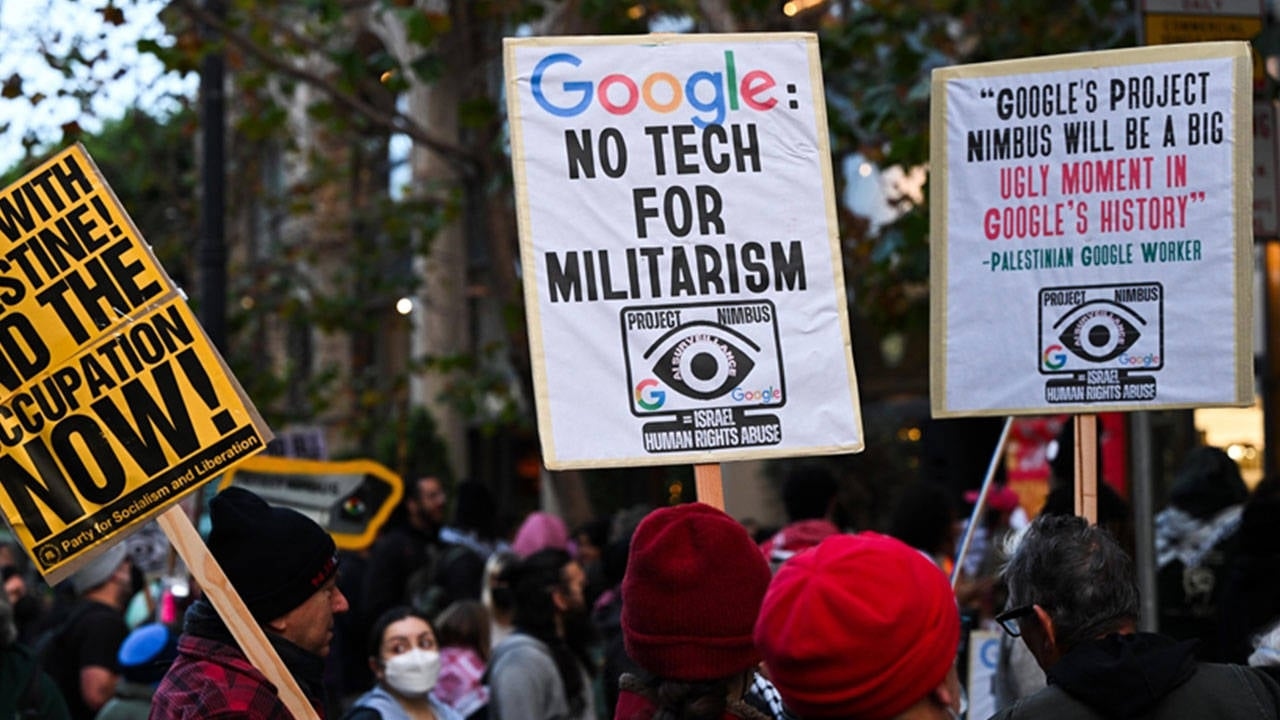Why digital independence is important

Cecilia Rikap – Paolo Gerbaudo – tribunemag.co.uk
How do you feel when you open your messages and realize the page hasn't refreshed and there's an issue with the app? Or when you visit a website and see a server error message with numbers like 500, 501, or 503? Now imagine the same thing happening on thousands of websites around the world—hospitals, schools, businesses of all kinds, and the websites of public sectors responsible for collecting taxes and distributing aid. It sounds like a Black Mirror episode, but we experienced two of the largest cloud service outages in recent memory in 10 days, with Amazon Web Services experiencing an outage on October 20, 2025, and Microsoft Azure on October 29, 2025.
While Microsoft's outage largely affected only the US, the Amazon Web Services outage paralyzed both individuals and businesses worldwide. More than 2,000 digital services created a domino effect that severely disrupted the daily activities of millions of people. Popular social media platforms like Snapchat and Reddit, gaming platforms like Fortnite, and government services were also affected by the outage. The gov.uk government gateway, which provides access to all types of public services in the UK, was hit hard: the message "Sorry, there's a problem with the service. Try again later" continued to appear in front of UK citizens throughout the day until AWS restored communication.
***
Both cloud service issues clearly illustrate the risks posed by the excessive monopolization of communications infrastructure in the hands of a few companies and demonstrate why it's urgent to transform "digital independence" from a fancy but empty phrase into a tangible reality. Cloud services are among the most oligopolistic markets in the world, with 60% of the global market held by three companies: Amazon Web Services, Microsoft Azure, and Google Cloud. This monopolization of these services exacerbates the problems of single points of failure, where a single technical issue can quickly spiral out of control. For example, in the Amazon outage, a minor configuration issue in the Domain Name System (DNS) in the US-East-1 data region disrupted all services.
Aside from the negative consequences for businesses relying on Amazon and Microsoft for cloud services, these incidents demonstrate the extent to which public institutions are deeply dependent on tech giants. The British government spent $1.7 billion on Amazon's cloud services agreements. At the time, this agreement was justified by AWS offering the cheapest service available. However, as we now understand, this compliance came at a significant cost, not only in terms of IT security but also in terms of a much broader long-term economic and technological dependency.
***
What's concerning is not only the rise of unintended technological malfunctions but also the international weaponization of digital assets for geopolitical purposes. In 2019, Adobe stopped providing Photoshop to Venezuela to comply with US sanctions, and Musk, in his attempt to gain influence during the Ukraine war, provided Starlink to Kyiv troops. More recently, Microsoft allegedly disconnected criminal court prosecutor Karim Khan's email to comply with US sanctions. While Microsoft denied shutting down the services, the company immediately added a binding clause in its agreements with European governments and the European Commission stipulating that it would initiate legal action if any government decided to halt or shut down its cloud services.
This alarming reality should alarm European lawmakers about the need to take concrete steps toward digital independence. However, on a continent heavily reliant on American digital technologies, this slogan is frequently repeated but rarely implemented. The European Commission, led by Ursula von der Leyen, has declared digital independence a critical goal and declared that it will further geopoliticize the European Union by granting it greater strategic autonomy. However, to date, the EU's technological dependence has only increased.
***
Worse still, digital sovereignty is now often used to justify policies that actually undermine it. The establishment of Big Tech data centers in Europe and other parts of the world is presented to governments as the creation of “independent clouds.” But no institution has taken this misleading narrative this far as the Tony Blair Institute for Global Change. Because it is largely funded by Oracle, this think tank has even been described by some as “a technology sales and lobbying operation for Oracle.” Oracle primarily offers its services in the cloud marketplaces of Amazon, Microsoft, and Google. This Tony Blair Institute is currently trying to shape the UK’s “digital sovereignty” agenda. The institute recently published a sensational report, “Independence, Security, Scale: An AI Infrastructure Strategy for the UK.” According to the report, the largest share of AI infrastructure should come from international partnerships, with “national/independent AI computing capacity” serving only as a backup. Rather than following the proposals of institutions funded by US-based multinationals, the very institutions that are pushing the UK, and Europe in general, towards the periphery of digital capitalism, the UK government should prioritize developing an independent ecosystem—one that should be publicly led and deliver core technologies as public services—and an alternative cloud marketplace for public institutions and agencies. While building such an alternative would undoubtedly be costly and face significant political challenges due to resistance from large corporations, it can be a small-scale initiative. A good starting point would be to free the National Health Service from its greedy contracts with Palantir and other Big Tech companies.
BirGün





